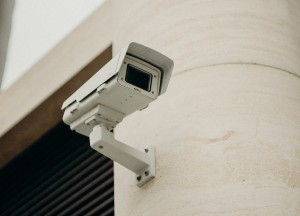#WeAreTogether: Big Brother is already watching you – so let him help fight COVID-19
26 May 2020

‘Big Brother’ tracking technology is already a reality of modern life, so should be embraced to help combat the spread of COVID-19, a leading expert has argued.
The use of mobile phones, CCTV and other technology to track movement has long been criticised by many for being an invasion of privacy. However, recording the movement of individuals who may later test positive for COVID-19 could help to cut the spread of the disease by warning those who come into contact with them, preventing further spread.
At an international conference of technology experts, Professor Kevin Warwick, Professor Emeritus in Cybernetics at the University of Reading, argued the time has come to change laws to allow such technology to be used for our benefit.
Professor Warwick said: “Our concept of privacy must change, particularly at a time of exceptional circumstances such as these. We have a plethora of information available, yet we do not use it.
“Extraordinary law changes would need to be handled very carefully so as to retain important data protection rules, but we are talking about a matter of life and death. Withholding certain information about an infected person's location at a specific time could put many lives in danger.
“We must get real, we are in a global technological world yet we are using ethical standpoints from the 19th century. Big Brother is with us now, so for our own good we should use it to help not hinder us.”
Professor Warwick was speaking at the COVID-19 Crisis Global Management virtual conference arranged by the Palace of New Thinking, a project created by noted physician and psychologist Edward de Bono to explore opportunities for innovative thinking.
He was part of a panel of experts from around the world, discussing the possibilities offered by digital tracking systems to share data between countries and make local quarantining more effective.
A person’s location can already be tracked using technology such as smart phone apps, telephone calls and card transactions. Public transport could also provide more information about who an individual might have come into contact with, by using assigned seat numbers or pinpointing which bus someone boarded using their pass.
Professor Warwick called for the ‘plethora of information’ we already have to be used, while finding new technology and data collection opportunities to make tracking the movement of individuals accurate and efficient.
Professor Michael Schmitt, Professor of International Law at the University of Reading, said that implementing a tracking program during the pandemic could comply with human rights law if it met certain criteria.
The degree of intrusion into privacy would have to be justified by the benefits of the program, and it would have to be applied non-discriminatorily, authorized by British law, and comply with the terms of treaties to which the United Kingdom is party, such as the European Convention on Human Rights.
Professor Schmitt said: “Government intrusions into the privacy of individuals, such as tracking their movements, can be justified in certain circumstances. To meet the requirements of international human rights law, they must be necessary to achieve a ‘legitimate purpose’ – but this requirement is clearly satisfied if used for tracing during a pandemic.
“Any tracking program would need to be designed so as not to be more intrusive than necessary in the circumstances. Such a program would be lawful under international law, although only if very carefully crafted.”
